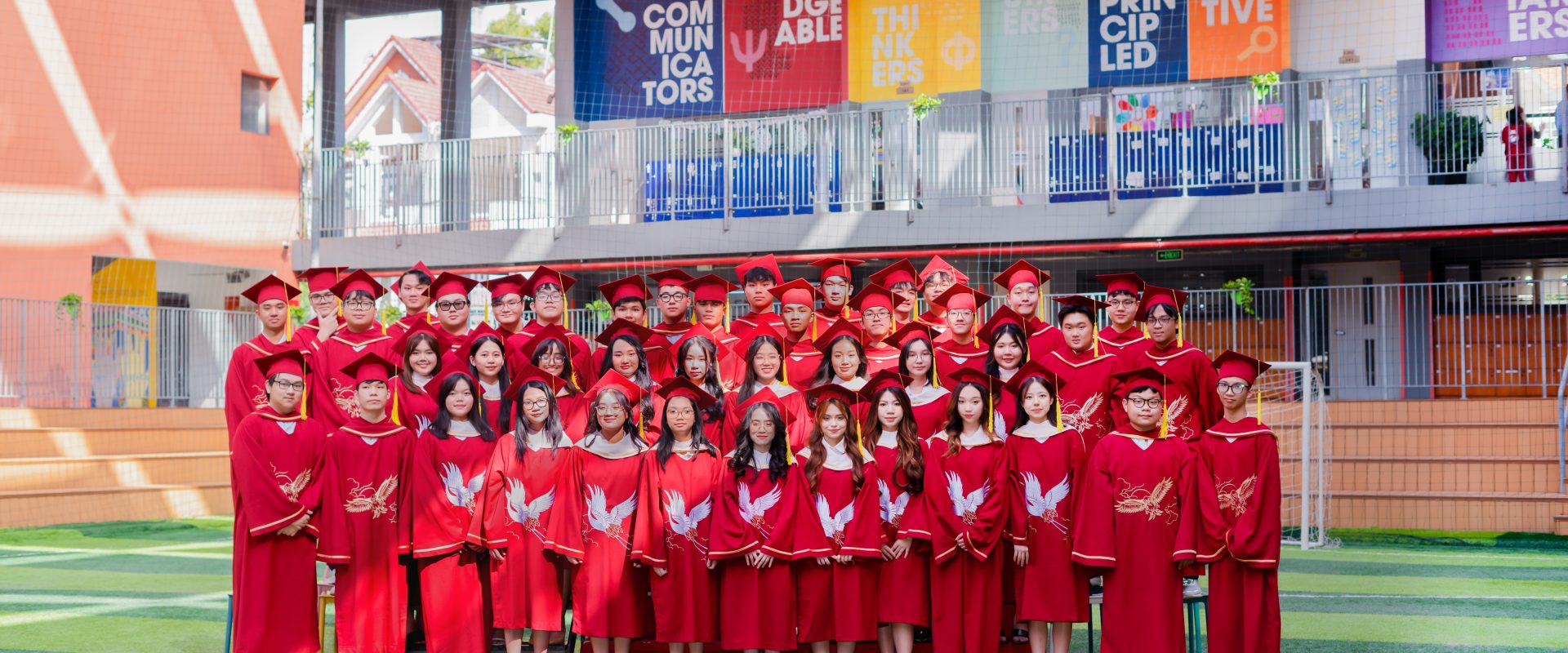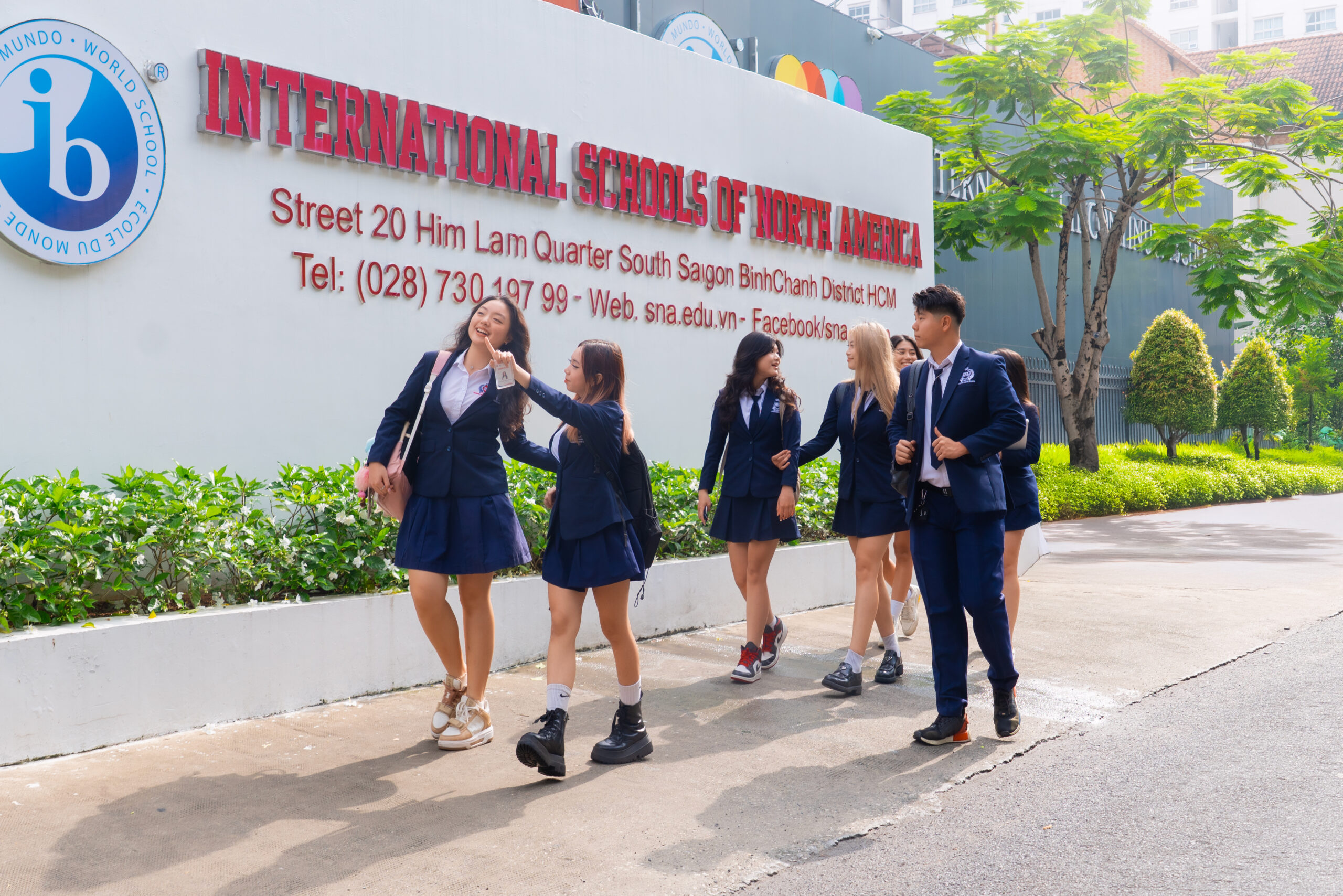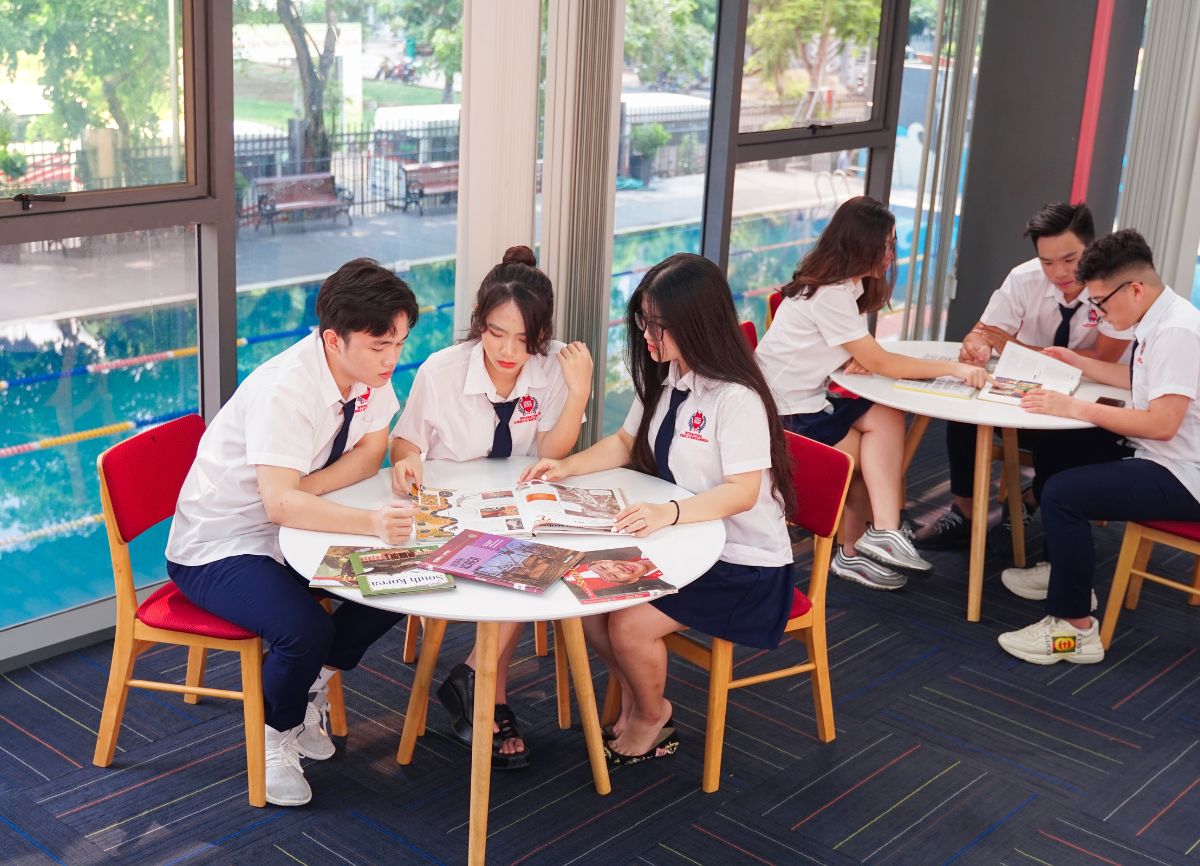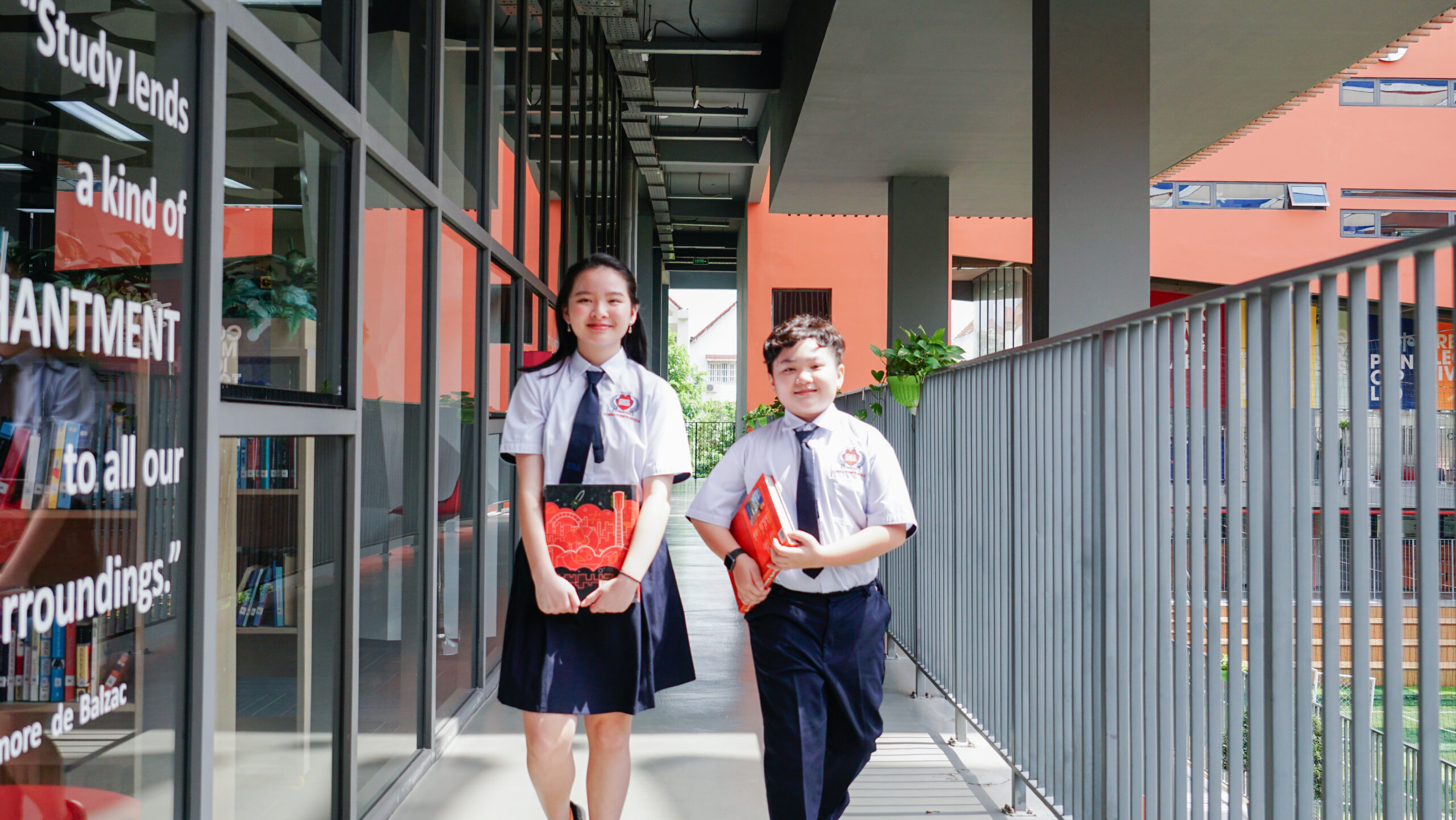The tuition fees for the 2025–2026 academic year are as follows:
-
Grades 1–5 (PYP): 514,560,000 VND
-
Grades 6–10 (MYP): 689,240,000 VND
-
Grades 11–12 (DP): 843,470,000 VND
Parents can view the full 2025–2026 tuition fee on the website or call our hotline at 0964 446 014 for a personalized consultation about tuition and current promotions for this school year.
SNA Saigon South has policies and measures in place to support mental health and address school violence, including psychological counseling, life skills education, and strict disciplinary actions against violent behavior. Details include:
-
Psychological counseling: The school may have a team of professional counselors to support students facing psychological issues, including those related to school violence.
-
Life skills education: The school may integrate life skills training—such as conflict resolution and emotional regulation—into the curriculum to help students prevent and cope with school violence.
-
Clear procedures: The school follows a clear process for reporting and handling school violence cases, including investigation, verification, and appropriate disciplinary measures.
-
Parental cooperation: The school may collaborate with parents to address students’ psychological and behavioral concerns.
-
Awareness and prevention: The school may organize awareness campaigns, workshops, or extracurricular activities to educate students, teachers, and parents about school violence and how to prevent and respond to it.
-
Safe learning environment: The school aims to create a safe, friendly, and positive learning environment to minimize the risk of school violence.
Note: Specific measures may vary depending on individual cases and the school’s policies.
Yes. All school buses are equipped with seatbelts, and the drivers are experienced and professionally qualified. In addition, a nanny is assigned to each vehicle to supervise, manage, and take care of students throughout the journey. Buses are also fitted with CCTV security cameras to ensure a safe environment for young passengers. Parents are encouraged to contact the Admissions Office via Zalo or the hotline 0964 446 014 to inquire about available bus routes and learn more about the school’s transportation service fees.
SNA Saigon South is currently offering 50% tuition scholarships for students from Grade 1 to Grade 10 for the 2025–2026 academic year. This is a valuable opportunity for students to access the comprehensive international IB programme in a high-quality learning environment.
Parents are encouraged to apply before the new school year begins (typically in August) to maximize their chances of receiving a scholarship during the main admissions season. However, the school also considers applications throughout the academic year on a case-by-case basis.
SNA Saigon South offers the full International Baccalaureate (IB) continuum, including the Primary Years Programme (PYP), Middle Years Programme (MYP), and Diploma Programme (DP).
-
Primary Years Programme (IB PYP): Designed for students aged 6 to 10, this programme focuses on developing effective communication, responsibility, critical thinking, and risk-taking through hands-on projects, exploration, and real-world experiences. Subjects include Languages (English and Vietnamese), Social Studies, Science, Mathematics, Visual Arts, Music, and Physical Education.
-
Middle Years Programme (IB MYP): Tailored for students aged 11 to 16, the MYP fosters critical thinking, problem-solving, and independent learning. It also emphasizes personal responsibility toward the community and environment. The eight subject groups include: Language and Literature (English, Vietnamese, Korean), Language Acquisition (Chinese, French, English), Mathematics, Sciences, Individuals and Societies, Design, Arts (Visual and Film), and Physical and Health Education.
-
Diploma Programme (IB DP): This programme is for students aged 16 to 19 and is both academically rigorous and balanced, preparing students for entry into top universities worldwide. It helps students develop intellectually, emotionally, and physically through inquiry-based learning, Theory of Knowledge (TOK), the Extended Essay (EE), and Creativity, Activity, Service (CAS).
In addition, SNA offers an EAL Bridge Programme (English as an Additional Language) to support students who are not yet proficient in English so they can successfully transition into the full IB curriculum.
The International Baccalaureate (IB) is a comprehensive educational framework designed for students aged 3 to 19, aiming to develop knowledgeable, compassionate, and globally minded citizens who are ready to adapt to the modern world. It is an ideal choice for students seeking high-quality international education—especially those planning to study abroad at top universities worldwide.
Unlike other popular systems such as A-Levels (UK) or Advanced Placement – AP (USA), the IB emphasizes holistic development—not only in academics, but also in emotional intelligence, critical thinking, and self-directed learning. Students are assessed based on a comprehensive portfolio of skills and attributes, rather than just test scores, which helps foster independence, curiosity, and problem-solving abilities in a global context.
A distinctive feature of the IB is its focus on developing 10 learner profile attributes, which define the qualities of an ideal IB student:
-
Inquirers – curious and eager to learn
-
Knowledgeable – well-informed and insightful
-
Thinkers – analytical and critical thinkers
-
Communicators – confident and articulate
-
Principled – honest, fair, and responsible
-
Open-minded – respectful of different perspectives
-
Caring – empathetic and compassionate
-
Risk-takers – courageous and willing to take on new challenges
-
Balanced – well-rounded in academics, arts, and well-being
-
Reflective – thoughtful and self-aware
With its humanistic philosophy, focus on sustainable development, and globally recognized curriculum—including by leading universities like Harvard—the IB has become a modern standard adopted by many educational institutions worldwide, including in Vietnam.
The admissions process at SNA Saigon South includes the following key steps: submitting a request for admission, completing the application form, paying the entrance assessment fee, participating in tests and interviews, and finally receiving the admission decision.
Here is a detailed breakdown:
Step 1 – Submit a Request for Admission:
Parents/students must fill out a preliminary request form so the school can initially assess the student’s suitability and potential fit.
Step 2 – Submit the Official Application:
Once the request is approved, parents/students will submit the official application form.
Step 3 – Pay the Entrance Assessment Fee:
Parents are required to pay the entrance assessment fee to proceed with the student’s testing and interview.
Step 4 – Assessment and Interview:
Students will take academic placement tests and have an interview with a school representative.
Step 5 – Receive the Admission Decision:
After completing all required steps, the school will notify parents and students of the final admission result.
Please note:
-
Submitting the request form early helps the school offer better guidance to families.
-
For Primary School admissions, factors such as academic performance, application file, class availability, and classroom diversity are also considered.
-
Applicants with siblings currently enrolled at SNA will be given priority, although all candidates are still evaluated according to standard admissions criteria.
Yes, SNA Saigon South offers boarding services. The school has a dedicated boarding house located just a 2-minute walk from campus, fully equipped to ensure students’ safety, comfort, and well-being.
Parents are encouraged to contact the Admissions Office for the latest information on boarding fees and further details.
Street No. 20, Him Lam Residential Area, Binh Chanh, Ho Chi Minh City
SNA Saigon South follows the IB curriculum, so students’ report cards and transcripts are based on international IB standards. However, with its license to operate an integrated program, the school is also able to issue official transcripts following the Vietnamese Ministry of Education and Training (MOET) curriculum for eligible students — specifically Vietnamese nationals from Grade 1 to Grade 9.
All students take the MAP entrance test, which allows teachers to identify each student’s strengths and areas for improvement. Based on the results, the school can provide appropriate guidance and learning plans to support well-rounded development. Currently, SNA offers an EAL (English as an Additional Language) class for students with limited English proficiency. This program is designed to help them catch up and succeed in the IB curriculum at SNA.
At SNA, the admissions process is clearly structured and flexible to ensure that transfer students, whether from domestic schools or international systems, can smoothly transition and integrate into the international learning environment.
Transfer students go through an evaluation process that includes: submitting application documents, taking entrance assessments (including the MAP test, a writing task, and an interview), and awaiting the decision.
This process is applied flexibly for students from both local and international schools, ensuring that each student’s abilities and adaptability are accurately assessed.
Once admitted, the school will guide parents through the necessary procedures in accordance with regulations before the student officially begins. Parents can find more details in the Admissions Policy available on the school’s official website.
Currently, for Grades 1 and 2 in the IB PYP programme, SNA assigns a homeroom teacher, a Vietnamese teacher, a teaching assistant, and a nanny to ensure that each student receives proper attention, supervision, and care in the classroom.
From Grade 3 onward, there is no teaching assistant, as the school encourages students to become more independent in both learning and daily routines. However, all teachers continue to closely observe and support students to ensure each child develops at their own appropriate pace.
The proportion of international students at SNA Saigon South is 5%.
For PYP students (regardless of whether they are Vietnamese or international), Vietnamese is part of the curriculum.
In the MYP, language studies are based on the student’s nationality. For example, Vietnamese students take Vietnamese as their Language and Literature subject, while Korean students take Korean. In addition, all students choose a third language through the Language Acquisition subject. Aside from English and their mother tongue (Vietnamese/Korean), they can select either Chinese, French, or EAL (English as an Additional Language) if their English proficiency needs further support.
Vietnamese is taught 6 periods per week.














